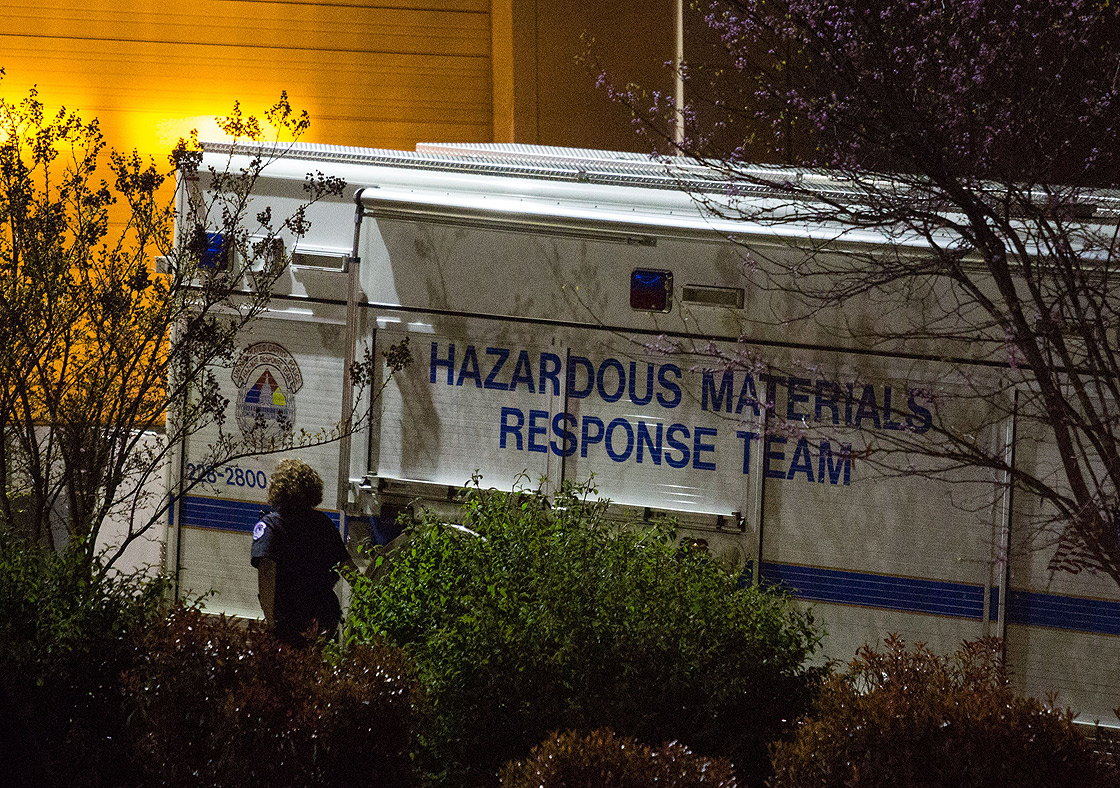TORONTO – Prior to finding out the FBI was on the heels of a Mississippi man accused of mailing letters laced with ricin to the White House, researchers at the Anti-Defamation League (ADL) were busy chasing leads online trying to identify the individual.

The letters – postmarked from Memphis, Tenn. according to an FBI intelligence bulletin, were addressed to President Barack Obama and Sen. Roger Wicker – allegedly laced with ricin, a poison derived from the castor plant.
Both letters included the phrase, “To see a wrong and not expose it, is to become a silent partner to its continuance,” and both were signed, “I am KC and I approve this message.”
The sayings used in the letters sparked the interest of Mark Pitcavage, ADL Director Investigative Research and an expert on domestic extremists. He believed that the snippets of text were quotations not originally written by the letter’s sender.
“Years ago he wrote this sentence on a grudge website against All State Insurance and over the years various people had discovered it and used it in activist and extremist comments.”
Bonnie Bergey, a retired former researcher with ADL, came to Pitcavage inspired by the recent events in Boston and Washington and was eager to do something to help.
Bergey, who Pitcavage credits as being a main force behind their investigation, decided to attempt to identify the person in the sign off – a far more difficult task, as there was very little information to go on said Pitcavage.
“Bonnie began to research that exact phrase and portions of the phrase in conjunction with other things that might turn up someone involved – for example, Memphis, or Mississippi, or Roger Wicker,” said Pitcavage.
“She eventually came across Paul Kevin Curtis and once she started looking into him she realized there were all these points of similarity – he uses that exact sign off phrase, or variations of it in different places online. Geographically he is in a position where he could easily have mailed the letters and he admits in various online postings have contacted people like Wicker and even admits to accosting Wicker at various events.”
It was then that the duo came together to further research Curtis, uncovering multiple postings online where Curtis describes a past that has plagued him.
Read More: Miss. mail suspect described body-parts conspiracy
According to Curtis’ own accounts he was working in a hospital in northern Mississippi when he came across a freezer full of body parts. He claims he came into conflict with the hospital administration after becoming convinced that there was a conspiracy to harvest body organs.
Bergey and Pitcavage discover that the Curtis claims to have sent millions of emails, to politicians and media outlets, in order to get his story out.
“What become clear, when looking at it all together, is this is a man who desperately wants attention because of this perceived grievance that he has and he is frustrated and angry that people are not paying attention,” said Pitcavage, who believed this was evidence of a motive.
Curtis also goes by Kevin Curtis or KC online – adding to the evidence.
Pitcavage said it was then they knew they should alert the FBI to their findings.
At that point the FBI had already identified Curtis as a person of interest in the case and later arrested him on Wednesday at his home in Corinth, near the Tennessee state line.
But Bergey and Pitcavage’s online researching ability – which Pitcavage refers to as Internet forensics – highlights the importance of the web in criminal investigations.
“It’s 99 per cent perspiration, and 1 per cent inspiration,” he said. “Most of what you need is a basic knowledge of the Internet, a logical consistent mind and a desire to follow every little lead and have the sweat equity to do it.”
Every year ADL identifies thousands of white supremacists, and hundreds of members of racist gangs by sifting through their posts on Facebook, MySpace and other social networks.
Pitcavage said his team has been able to identify a huge number of extremists and people of interest through online searches and a few basic rules, such as the rule of names – a way researchers can track the use of someone’s screen name.
The rule is that generally people tend to use the same screen names and first part of email addresses. Therefore a simple web search of the screen name could uncover past email addresses, chat room names, or social networking profiles.
“The Internet over the course of the past 18 years has become the world premier communication tool and this is true for extremists and much as its true for anyone else. While we continue to learn about extremists in other ways, the Internet has become a huge information source for us and however they use the Internet – we use it to track them,” said Pitcavage.




Comments